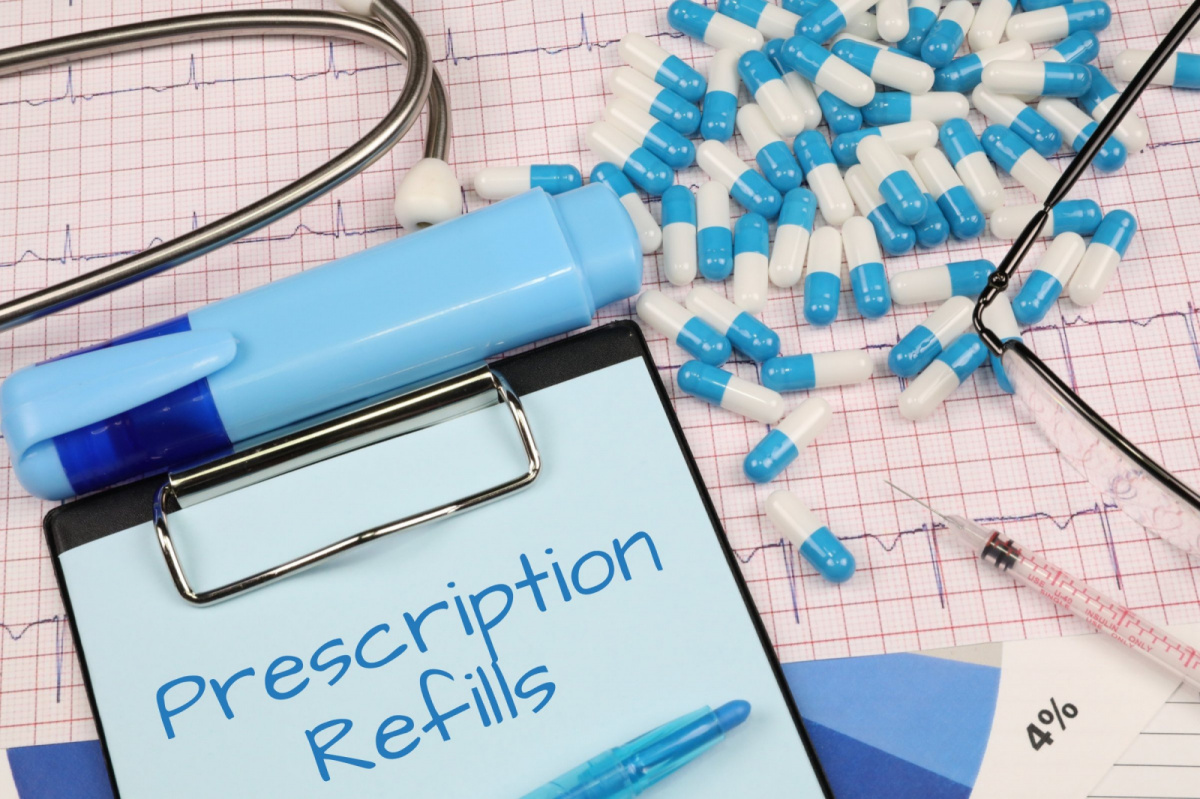Prescription Refill
IMPORTANCE OF MEDICATION REFILLS
Studies and surveys have demonstrated that over half of the prescription medicines dispensed in the United States are not taken as prescribed and 24% of patients do not keep up with their refills.
Nonadherence to a provider recommended medication regimen, as well as not keeping up with timely refills, can be detrimental to one’s health, especially for people with cardiovascular risk factors and/or diabetes.
What’s a Prescription Refill?
If you have been prescribed a medication before and are still eligible, a refill means you can order a new supply once you are running low or out of medication. When the provider writes the prescription, they will decide on the length of the current prescription and if any refills can be issued. Contacting your pharmacy or reviewing your prescription label will clarify if any refills remain on your prescription.
It's important to be aware that for the safety of the patient, not all medications come with refills.
Why Would a Medication Not be Refilled?
There are many factors that can contribute to why a prescription is not refillable, but here are a few reasons:
- Antibiotics or other medications used to treat acute infections. These should not be refilled as the designated amount issued initially should have been enough to treat the issue. If the condition is not completely improved or reoccurs, a follow-up exam is suggested to make sure there are no other issues going on.
- Lab testing is needed. Oftentimes providers will want to look over lab tests and assess how well the medication is treating the condition and/or to ensure no unwanted effects have occured before renewing.
- 30 days vs 90 days. There are times that a provider will issue 30 days instead of 90 days. Although it can be viewed as a moneymaker to some, this is done for the well-being of the patient. Some medications and their respective medical conditions require rapid follow up and close monitoring. Additionally, there are instances where it is more dangerous to discontinue a medication abruptly before a complete evaluation is performed. Therefore, a short-term prescription (usually for 30 days) is often provided as a bridge to obtain the proper testing or in-person visit.
Run Out of Meds?
It’s Monday morning, you are refilling your weekly pill box and you realize you don’t have enough to get through the whole week. There are no refills left on your prescription bottle and you just don’t have the time to go to your doctor! We have all been there at one point or another. Here are a couple things you can do:
CALL YOUR PHARMACIST
You can call your pharmacist and see if they can contact your primary provider to get an additional refill, or an emergency refill, until you have time to travel to the provider's office.
USE TELEHEALTH TO YOUR ADVANTAGE
Telehealth is revolutionizing the healthcare industry. It allows you to have an online “visit” with an experienced medical provider without leaving your home. This service can also be utilized when travelling or when you are away from, or unable to reach, your primary provider.
MDAnywhere offers this refill service. If you have had an unexpected interruption in your prescription medication supply, MDAnywhere physicians can help bridge the gap.
Request a REFILL

